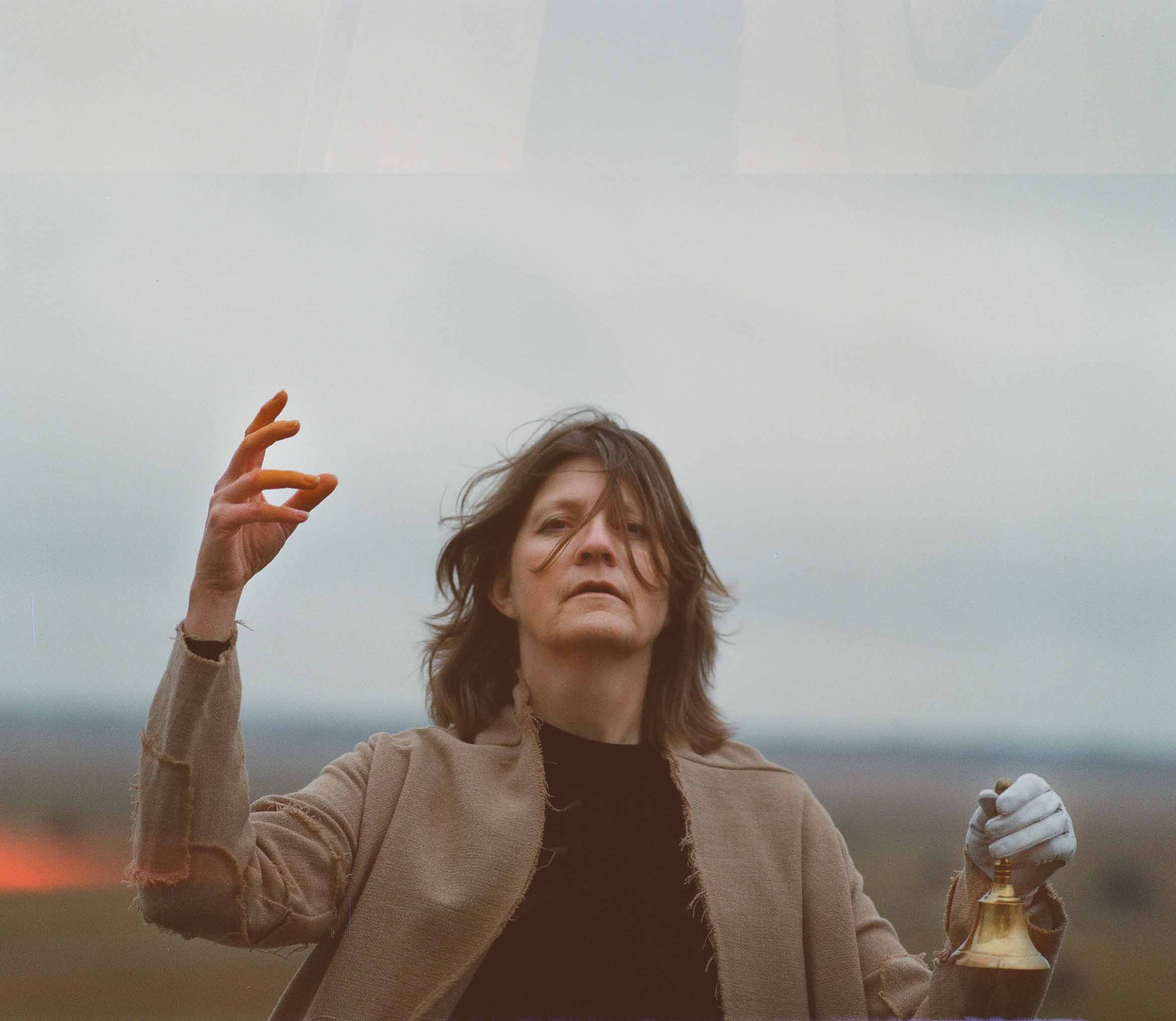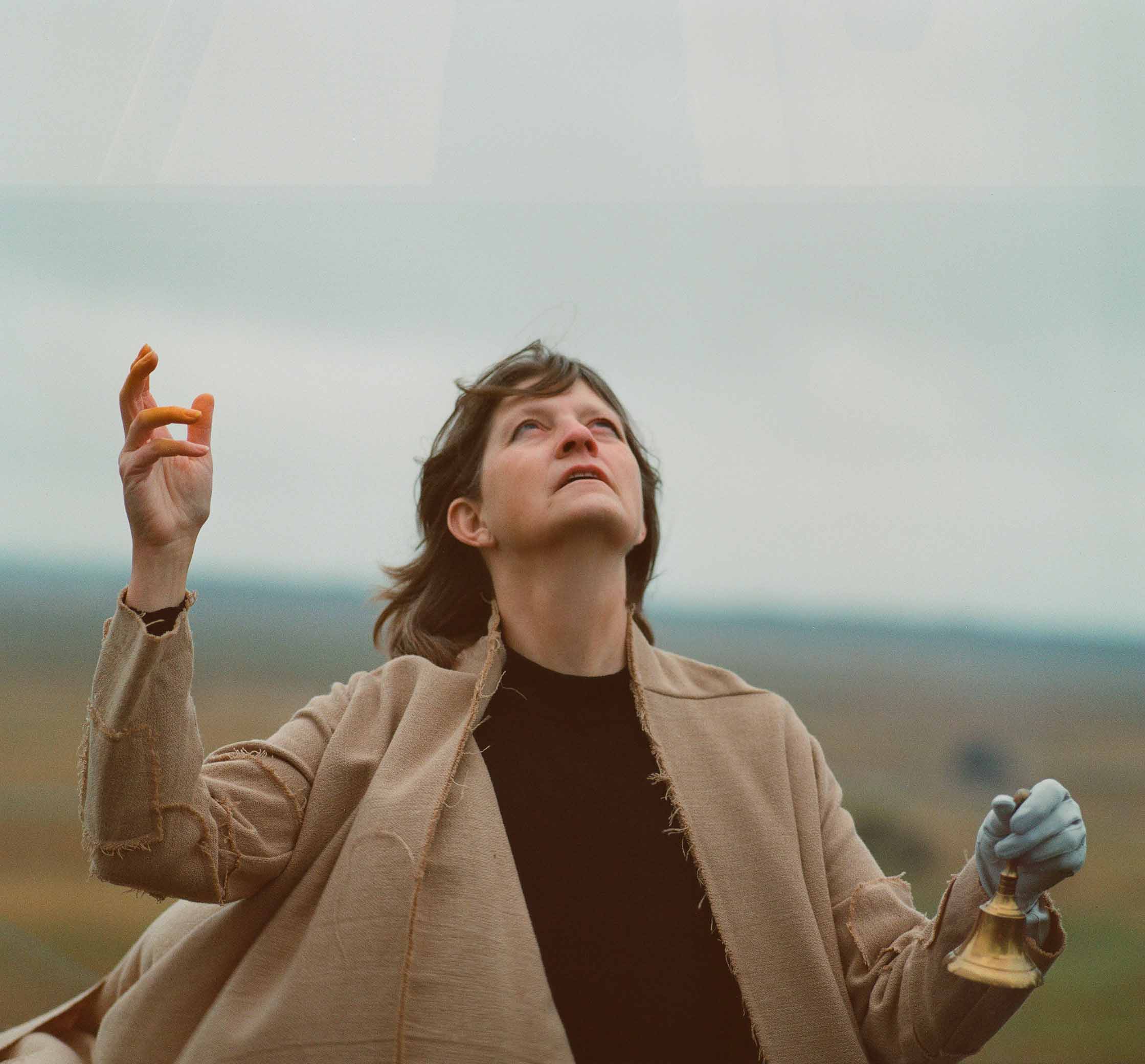Zenith (2024)
There once was a woman, who hungered for a feeling she had never felt.
It was like a hole in her chest. She imagined it to be the experience of the highest beauty, and it would fill her belly, her chest and throat, and draw her into one moment of perfect joy.
She gave the feeling a name: zenith, after the point where the sun sits highest in the sky. And she decided that she couldn’t die before she’d felt in zenith.
The woman travelled far and wide; she tasted all kinds of food, saw all kinds of art, danced to all kinds of music. She climbed mountains way too fast and dived way too deep, and twice she got close to zenith: once, when a shiny arabian horse galloped right towards her, and once having a dessert caramel, while her mouth was still hot with chili.

The woman gets very old, and one day Death passes through the thin membrane and sits at the foot of her bed. But she’s angry and frustrated, and she refuses to welcome Death as a friend. Instead, she starts negotiating. She asks to take Death’s job, so she can keep searching, and Death can rest. And since Death has gotten milder over the years, Death accepts.
She cuts her dark hair, assumes an indeterminable age and clothes herself in a pinstriped suit, so big she has to roll up her sleeves and pant legs. From that day on, she releases souls into what we call Nothing.
The first year goes by with quiet deaths; worn down, burned out, long term illness. She watches them for ours, waiting, until she remembers she’s the one who has to end the party.
In her second year, she has to take a grey-muzzled Saint Bernhard dog, lying alone in a locked bedroom. One of the children wants to be with the dog, but doesn’t have the key. And the woman, Death, can barely stand it, and she has barely touched to lock to pry it open, the door springs up, and the child can run in and spend the last hours with their family dog. The woman sees the child bury their head in the thick fur and hold the large animal, and she feels a heavy, yellow joy in her solar plexus. She doesn’t understand what’s happening, and she wobbles on her feet, but just as it has passed, she realizes that she was close to zenith.
She starts with little adjustments. Suddenly, the phone does work, so the father can call his daughter on his death bed; the pain relievers work much stronger, so the patient doesn’t suffer; the car hits the tree and doesn’t end up on the bottom of the lake.
But the feeling never gets stronger. No matter how close she is to the departing’s tears of joy, or how grateful the son is to see his mother for the last time, she can’t hit what’s she’s so desperately craving. In time, the feeling grows pale.

The frustration is now a translucent sorrow that she’s carrying, and it wears her down, so much that she spends as little time in the human world as she can. She spends her time wandering deserts, highlands and the seven oceans. She gazes up at the sun and tries to breathe it in when it’s highest in the sky.
One day, she’s walking through green hills, in the beginning of May, and suddenly she senses someone at her side; Death, the old Death. He doesn’t say anything, but he looks at her the way she looks at the dying, and she knows that she is done, she’s being terminated. She starts crying bitter tears over all these years without the feeling, without zenith, crying because she’s human again. She’s an old woman, who never found what she was looking for, and now it’s over.
But something soft grazes her leg. It’s the child’s Saint Bernhard dog. It looks up at her, black-muzzled, and strong, and she strokes its shiny fur. As she looks around, she sees hundreds, no, thousands of people, spirits, dead, and she recognizes every single face, and she knows they’re here for her now.
Everything draws into itself. The woman stumbles, trembling, filled with yellow, the thickest, heaviest joy, in her belly and chest and throat, and someone catches her before she hits the ground. In that moment, the clock strikes twelve, and the sun is at the highest point in the sky. She’s taken the long way home, but here we are.
